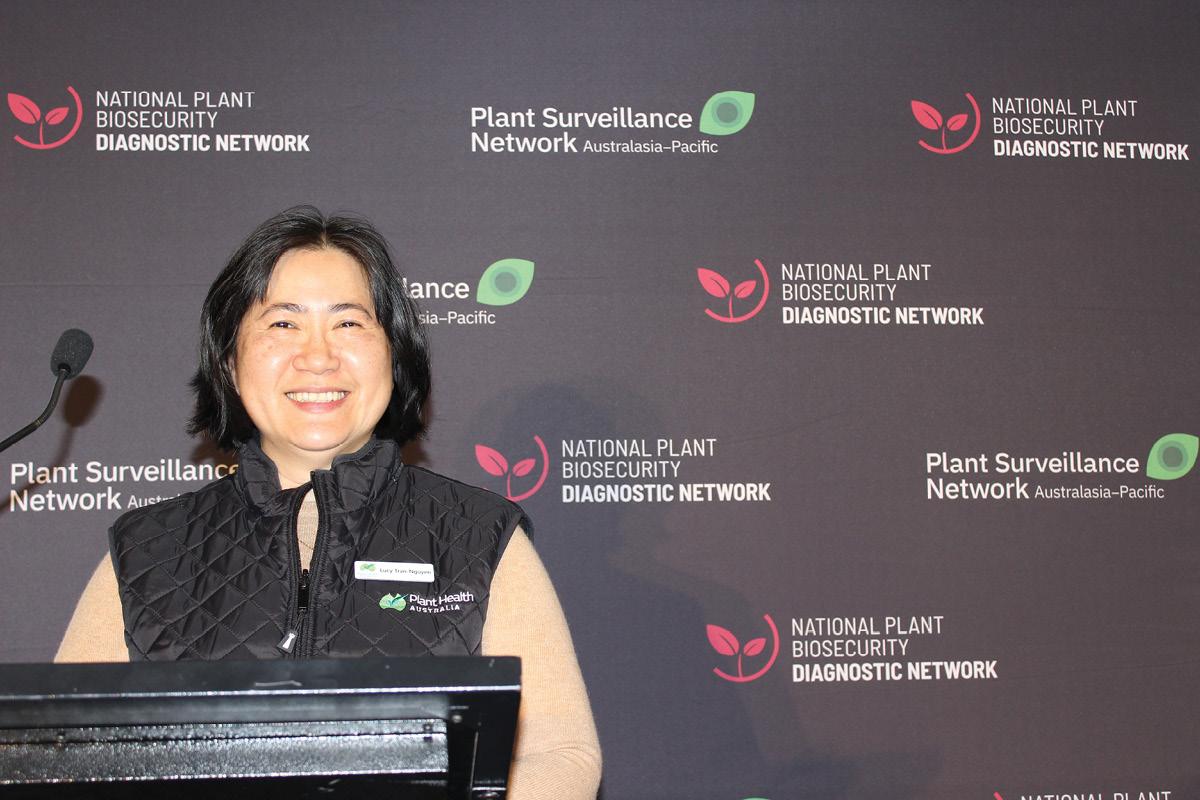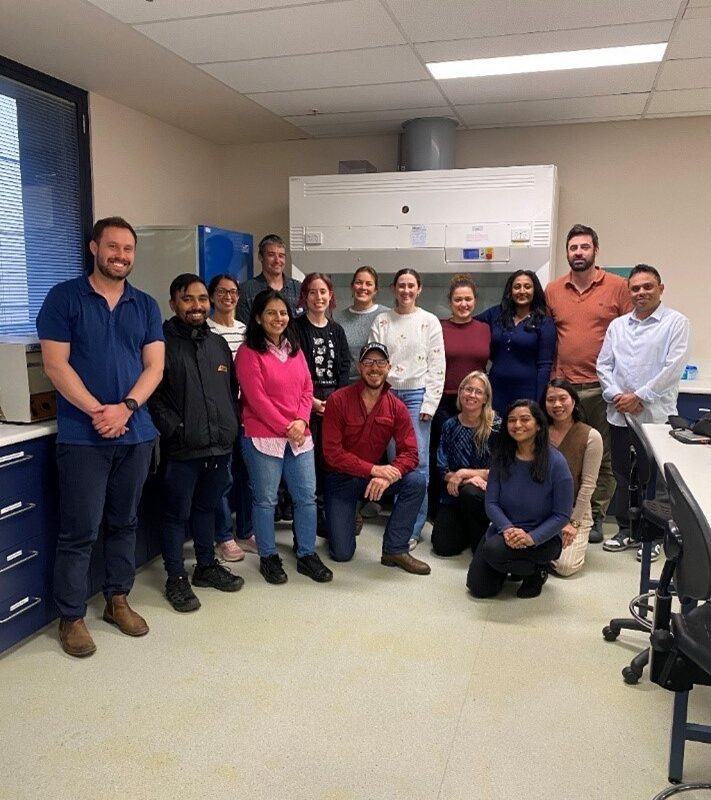ADSW 2023: Implementation through connections
Themed ‘Implementation through connections’ the hybrid Annual Surveillance and Diagnostics Workshop (ADSW) workshop was held at the QT Hotel in Canberra from 9 – 11 May.
“ADSW 2023 aimed to enhance and strengthen Australia’s diagnostic and surveillance capacity and capability to identify priority plant pests that impact on plant industries, environment and the community,” said Dr Lucy Tran-Nguyen, PHA General Manager, Partnerships and Innovation.
The program consisted of presentation sessions, panel discussions, workshops and a field day, which allowed diagnosticians and surveillance practitioners to come together and share knowledge and learnings.
The six sessions included:
- Session 1: Implementation and sharing new technologies
- Session 2: Capacity building to connect surveillance and diagnostic practitioners
- Session 3: Outreach and engagement to implement and connect our work
- Session 4: The wider industry connection – R&D implementation and pathways to connect
- Session 5: Reconnecting with the building blocks of the plant biosecurity system
- Session 6: Connections across our National Surveillance Protocols and National Diagnostic Protocols.
The event kicked off with two training workshops. The ‘Multi-locus target sequencing (MLTS) workshop was presented by Dr Pragya Kant, a research pathologist at Agriculture Victoria and Amanda Yong, National Manager, Marketing and Communications at Plant Health Australia (PHA) delivered a ‘Science of communication workshop’.
Some of the other highlights included:
- 42 abstract presentations
- 110 in person delegates
- 90 virtual delegates
- 8 guest speakers
- 1 international speaker
- 3 training workshops
- 4 diagnostic and surveillance residential updates
- 1 plant health student network panel
- 1 mind mapping session
- 1 field day activity
- 1 networking social event.
On Day 3, delegates attended a field training activity at the Australian National Botanical Gardens, where they participated in surveillance of Xylella fastidiosa (based on National Diagnostic Protocol Section 9), and diagnostics using loop mediated isothermal amplification (LAMP) assay and Agdia kit for Xylella. (Xylella is not present in Australia or New Zealand and is considered Australia’s number one national priority plant pest.)
“National Diagnostic Protocols (NDP) and National Surveillance Protocols (NSP) are critical as the primary source of information in plant biosecurity diagnostics and surveillance activities. It was exciting to see the draft Xylella NDP be applied in a training exercise at ADSW2023. The surveillance work instruction developed from the NDP Section 9 was used for sampling host species and tested using the assays described in the NDP. As expected, testing showed the samples were free from Xylella” said Dr Tran-Nguyen.
Dr Sharyn Taylor, PHA’s National Manager, Surveillance, concluded the event with a workshop on ‘Surveillance Workshop Towards a Nationally Integrated Surveillance System for Plant Pests’
ADSW2023 was facilitated by PHA and funded by the Department of Agriculture, Fisheries and Forestry (DAFF) as a part of the ‘National Plant Biosecurity Diagnostics and Surveillance Professional Development and Protocols’ projects. PHA would like to thank the Network Implementation Working Group (NIWG) and the Plant Surveillance Network Working Group (PSNWG) for their support, planning and contributions for the ADSW2023. A special thanks to Agdia and Biosecurity Tasmania for supplying the demo kit for training purposes.






